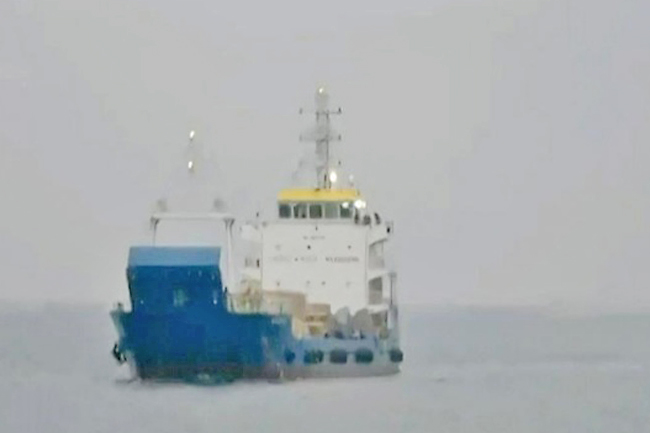DUBAI (AFP) – Yemeni rebels’ seizure of a United Arab Emirates (UAE)-flagged vessel has set off alarm bells that the conflict could “wreak havoc” on oil and cargo shipping in the strategic Red Sea, analysts said.
The Huthi rebels are more used to fighting in the dusty country’s craggy mountains but on Monday took the bold move to hijack the Rwabee with its international crew.
They later showed video purportedly of military jeeps and weapons on board, while the coalition fighting for the internationally recognised government insisted it was carrying medical equipment.
The hijacking, in the busy Red Sea that separates the Arabian peninsula from Africa, and is connected to the Mediterranean by the Suez Canal, sent out a clear message, analysts say.
“It is hard to pinpoint the exact cause for the Huthi seizure, and the group’s messaging has been a bit mixed,” Yemen specialist at the non-governmental organisation Crisis Group Peter Salisbury.
“But it is hard not to read it as a not-so-gentle reminder that they could wreak havoc on Saudi and Emirati shipping in the Red Sea if they so wished.”

The seven-year war, a battleground for the regional rivalry between Saudi Arabia and Iran, has displaced millions, creating the world’s worst humanitarian catastrophe, according to the United Nations (UN).
It has mainly been fought on land. The Huthis’ last ship capture was in November 2019, when they seized two South Korean vessels and a Saudi-flagged tug in the Red Sea north of Hodeida.
The latest hijacking follows setbacks for the rebels with defeats in Shabwa governorate to the pro-government Giants Brigade, who are backed by the Saudis and the UAE.
It also came on the second anniversary of the death of top Iranian General Qasem Soleimani, who was killed by a United States (US) drone strike near Baghdad airport.
On the same day, two major Israeli media outlets were hacked and two armed drones targetted a compound at Baghdad airport hosting personnel from the US-led coalition fighting the Islamic State (IS) group in Iraq.
But senior Arabian peninsula analyst at Navanti Group Mohammed al-Basha said the Rwabee’s capture looked like an “escalation” by the rebels.
“The seizure of the UAE flagged vessel signals both a political and military escalation to the Saudi-led coalition,” he told AFP.
“Observers and policymakers have long feared that the war in Yemen could spill over into the Red Sea and destabilise vital shipping lanes.”
Conflict in the Red Sea could cause chaos. The waterway carries about 1.5 million barrels of oil per day from Kuwait, Oman and Saudi Arabia, including most of Europe’s crude imports from the Middle East, according to energy analysts S&P Global Platts.
The coalition has threatened to target rebel-held ports in reprisal for Rwabee, an action that could carry risks for the Safer – an abandoned tanker carrying 1.1 million barrels of crude that has been lying off the Yemen coast since 2015.
Environmentalists have already warned that the Safer, which is about 22 kilometres from where the Rwabee is being held, could break apart or explode at any moment, setting off an environmental disaster.
But for Director of the Sanaa Centre for Strategic Studies Maged al-Madhaji, the Rwabee was all show from the rebels, who are not well versed in naval warfare.
The hijacking gives them “benefits of a political nature and raises their profile, rather than any real military gains”, he said.
“They don’t have a lot of experience at sea because they’re fundamentally mountain fighters,” added Madhaji.






